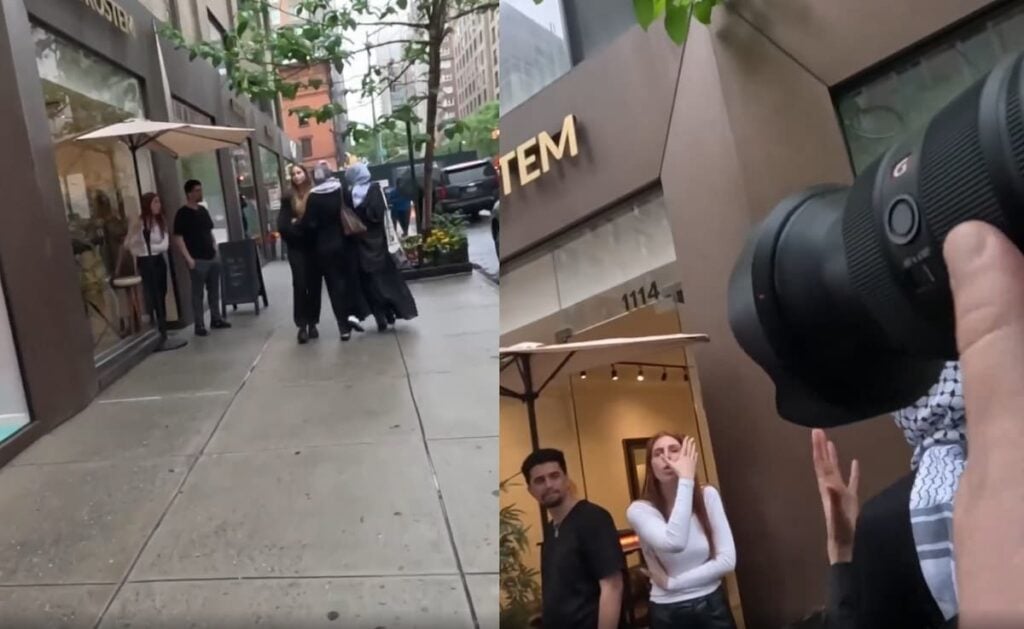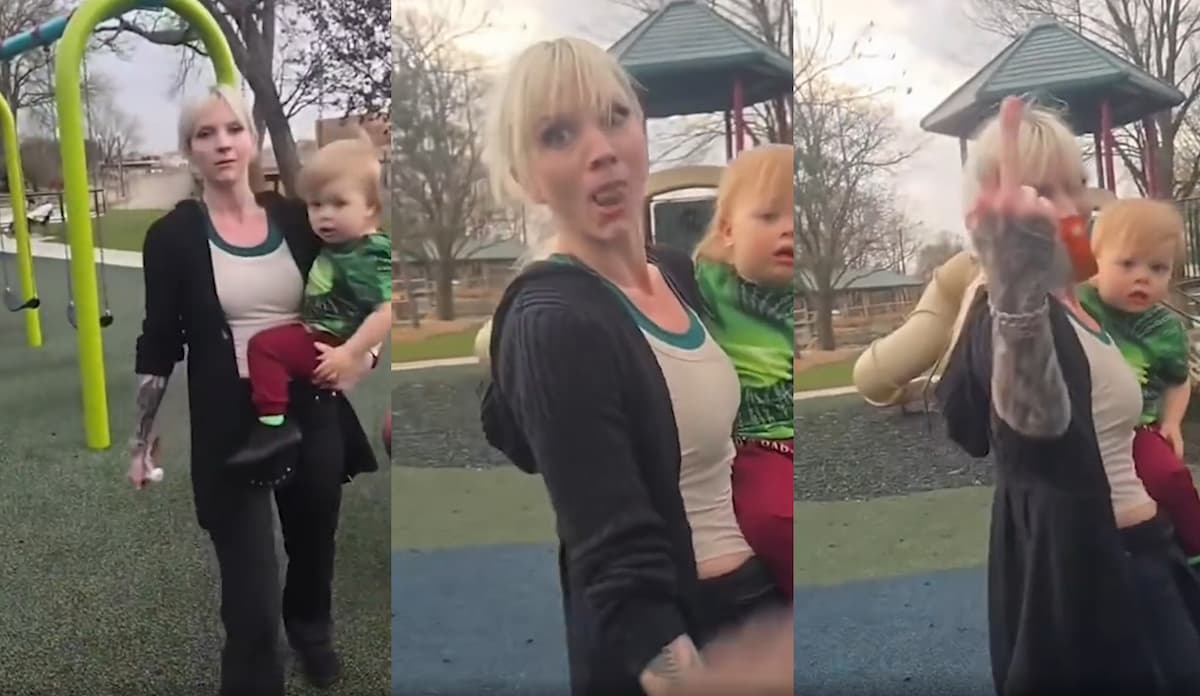In a jarring moment caught on video and widely circulated online, a woman associated with the skincare retailer Introstem was seen in Manhattan, New York, deliberately shoving two Palestinian women wearing traditional hijabs, an incident that unfolded in broad daylight on Madison Avenue, just blocks from where recent pro-Palestinian and pro-Israel demonstrations have clashed.
The video, which quickly gained traction across social media and Reddit, shows the woman waiting near the storefront before abruptly lunging at the women as they pass. The act appeared calculated, with some users claiming the woman had been filmed earlier antagonizing protesters at a nearby anti-genocide rally. Her behavior, according to bystanders and commenters, was not only aggressive but clearly targeted.
“This is blatant assault,” one Redditor wrote. Another added, “She’s trying to get in on that racist GoFundMe.” The remark echoes a growing trend where public figures caught in discriminatory incidents often pivot into victimhood narratives and online fundraising—sometimes netting thousands despite public backlash.
The store in question, Introstem, is a high-end cosmetics chain that some locals say has long been known for pushy sidewalk tactics. “They’re like the pole at mall kiosks,” one commenter said. “Always standing outside, hassling people to come in.” Another user familiar with the area wrote, “This is right around the corner from where I work. I pass them every day.”
As for the motivation behind the recording, skepticism has been raised, though most agree the reaction has less to do with framing and more with the undeniable, recorded act. “People start recording because a crime could happen. The employees could easily be known harassers,” one user explained. “This kind of hate is nonsensical.”
The video, paired with additional context from earlier encounters, paints a clearer picture of a woman emboldened in a time of increasing tension around identity, protest, and public space. While the NYPD has yet to confirm any charges stemming from the incident, the court of public opinion has moved quickly. Calls for accountability have mounted, with users digging into the company’s presence and the identities of those involved.
“It’s only a matter of time before they get named and shamed—and for what?” one user asked. “A few internet points?”
Street confrontations like this don’t stay local for long, especially now, when the line between protest and provocation can vanish with a single step and a camera already rolling.








